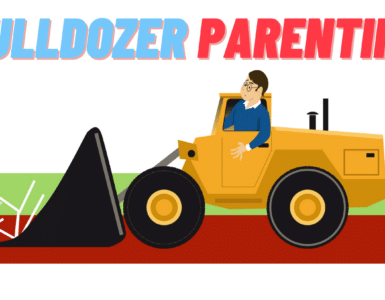(originally published April 2020)
My boys, aged 5 and 7, are pretty self-reliant. They’re smart, resourceful, and find endless ways to amuse themselves (read: get into trouble).
The fallout from coronavirus-related isolation has had both positive and adverse effects on our household. Ever-resilient, the kids have found ways to occupy their time and fit in a bit of formal education here and there. But every once in a while, I find myself in the middle of a clingy, emotional sandwich.
Sometimes, feelings get big and the uncertainty of the weeks to come weigh heavily on their little bodies.
Classic regression means that a child isn’t able to cope in a manner as mature as what they’ve mastered. I’ve noticed unprecedented regression from all age groups in the media, including teens and tweens.
Wiseman is the author of Queen Bees and Wannabes: Helping Your Daughter Survive Cliques, Gossip, Boyfriends, and Other Realities of Adolescence — the book that inspired the hit film Mean Girls.

Wiseman told me that young people have been experiencing elevated levels of anxiety, even before the COVID-19 pandemic.
“Clinginess in young kids is an age-appropriate behavior for sure, but now it’s really exacerbated,” she says. “There’s usually an amount of extreme clinginess, predominantly from young kids towards their parents. But as they grow up, older kids depend on their peers for identity and belonging. You’d see a shift to clinging to those friends.”
Peer reliance is easier in normal social settings, but with quarantines and social distancing, kids are relegated to a virtual forum. While older kids are more adept at socializing online, the inability to reach out and make human physical contact can affect their mood and behavior in ways they might not even recognize. “It makes sense that you’d want to cling to the relationships that give you the most comfort,” says Wiseman. “It could be a parent, or your friends as a teen or tween.”
And what about young people who don’t have a lot of friends at school, or who were just starting to make friends? What about the students who rely on after-school activities or special interest groups to bulk up their social calendar? It’s easy to see how even teenagers can regress and rely heavily on their parents for emotional support.
AHA Parenting identifies some of the more common examples of regressive behavior, including:
- Emotional volatility and/or anger
- Need for reassurance
- Inability to focus
- Sleep (too much or not enough)
When we as parents are stressed, our kids pick up on that stress, regardless of their age, and clinginess can often ensue. “Clinginess is connected to anxiety,” says Wiseman. “We don’t have to know the answers, we just have to acknowledge and process our feelings so that we can help them process theirs.”
“We’re all completely struggling, but creating small breaks of time to share together is super important,” Wiseman suggests. “It’s important to do activities together where you can model appropriate sharing, vulnerability and a growth mindset.”
“For kids who are anxious, they’ll want to be a perfectionist or they’ll feel that it’s not worth doing, so circumventing that is important,” she emphasizes. “The process of doing it together is the value, it creates security.”
Wiseman also encourages parents to set boundaries for their kids, regardless of their age. “Society gives us so much guilt for not doing everything for our kids,” she says. “Culturally, that whole idea of doing everything for them is completely at odds with teaching them self-reliance.” It’s important for parents to realize that by saying “no”, they are still “there for them” while they build self-esteem and resilience. The steps Wiseman outlines for setting boundaries can apply to any child, regardless of age:
- Establish the boundary.
- Communicate it to your child (i.e. what the expectation is, and identify what they need help with.)
- Help them identify one thing they can do for themselves and one thing they’ll require assistance with.
- Practice with them (in an age-appropriate way.)
- Practice kind reminders when they forget the steps.
With older children, Wiseman suggests moderating your language to be age-appropriate, and to make sure you’re having these conversations when you’re not super-stressed. “If you blow up (and you will), apologize and then state what you need,” she says. “Even if you have to leave your work and come back. Multitasking isn’t ideal, but when you’re anxious or angry, the task at hand will suffer. Don’t power through the meeting; put it on pause. It demonstrates to your teen that he has your full attention.”
“You are advocating for your kids when you set limits. It’s an act of self compassion,” says Wiseman. “When you establish healthy boundaries, you empower them. You’re saying ‘I have faith that you can figure this out.’”
Resources:
Slate
Healthfully
Cultures of Dignity








Add comment